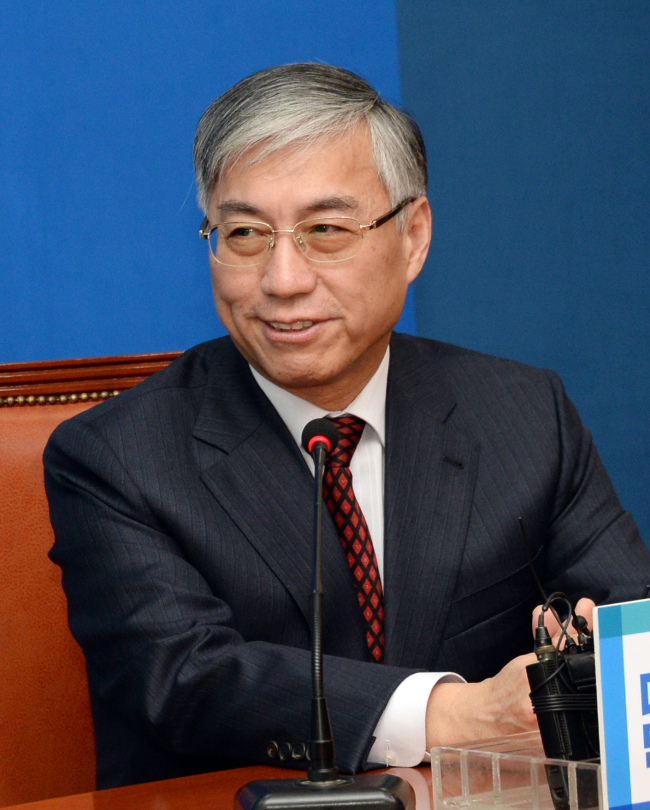The South Korean Foreign Affairs Ministry on Wednesday summoned Chinese Ambassador to South Korea Chu Guo to protest his recent comments against deploying an advanced U.S. missile defense system here.
Chu had said that stationing the Terminal High Altitude Area Defense system here may “destroy” the bilateral relationship between Seoul and Beijing, during a meeting with interim leader of the main opposition The Minjoo Party Kim Jong-in on Tuesday.
Deputy Minister for Political Affairs Kim Hong-kyun complained to Chu, and the ministry officials said they are working to find out whether the remarks have been relayed from the Beijing government.
“The ambassador (Chu) said he understood the grave nature of this incident, and vowed to continue working for the relationship between South Korea and China,” the ministry said.
South Korea and the U.S. are set to officially launch talks on deploying the THAAD system this week, after North Korea pushed forward with nuclear testing last month and a long-range rocket launch earlier this month.
But China has been opposing the deployment, saying it will dent Beijing’s security interests.
 |
| Chinese Ambassador to South Korea Chu Guo (Yonhap) |
Cheong Wa Dae reiterated Wednesday that deploying THAAD is a matter related to South Korea’s self-defense in a message to Beijing. The statement echoed President Park Geun-hye earlier remarks that the “only criteria for deploying THAAD was our national security and what is beneficial to the country.”
Cheong Wa Dae also rebuked Pyongyang’s threat made a day earlier, vowing a “stern retaliation” against further provocations, warning that Pyongyang is responsible for any situation that arises and such actions would only lead to its demise.
Pyongyang said Tuesday that it will make preemptive strikes on Cheong Wa Dae and U.S. military installations in the Asia-Pacific region, as well as the U.S. The North’s remarks came as the allies are preparing to hold the largest-ever military drills next month, and the U.N. Security Council is reportedly inching toward tougher sanctions. The South has also been taking a tougher stance with President Park mentioning in her Feb. 16 speech the possibility of Kim Jong-un regime’s collapse.
The Joint Chiefs of Staff released a statement decrying the communist country for its recent denouncement of Seoul-Washington’s military drills.
“The military strongly urges North Korea to immediately cease provocations that will lead it to destruction. Should the North take no heed of our warnings and push ahead with further provocations, we will make them regret it with a stern response,” the JCS advised. “We warn that (provocations) will lead to the downfall of Pyongyang’s dictatorial regime.”
Presidential spokesman Jeong Yeon-guk told reporters that the North’s comments were “unacceptable” and would have to take full responsibility for what happens.
The U.S. recently deployed high-powered strategic assets here, including the F-16 “Raptor” stealth jets and nuclear-powered submarine.
A military official recently said that next month’s joint military drills will be based on an “endgame scenario” that will simulate the fall of Kim Jong-un’s regime.
Kim’s regime described the drills as “the pinnacle of hostile acts” and called on Seoul to apologize to avoid “ruthless punishment.”
By Yoon Min-sik (minsikyoon@heraldcorp.com)

